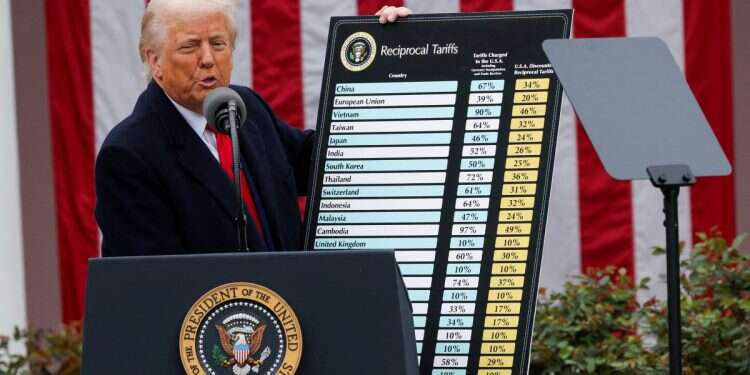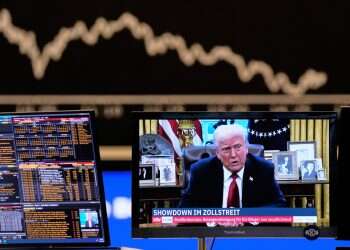President Donald Trump stunned markets with his announcement Wednesday imposing tariffs on numerous countries, including on Israel, despite the latter announcing an end to import taxes on US-made goods. Tariffs at this level could deal a tough blow to entire economic sectors, such as defense industries and even Israel's high-tech sector.

The new tariffs imposed Wednesday by US President Donald Trump on goods from various countries have sparked global uproar, with the highest rates targeting Cambodia (49%), Laos (48%), Vietnam (46%), Burma (44%), and Sri Lanka (44%). These align with the reciprocal tariff policy he declared last year.
For Israel, the local economy takes a significant hit with a 17% tariff on exports to the US, its largest and most vital trade partner (alongside the EU).
Tariffs of this magnitude could strike a tough blow to entire economic sectors, like defense industries and even the high-tech industry – already strained by limited investments due to high interest rates and Israel's political crisis.
"Transfer pricing"
A popular yet controversial tax strategy in the world of high tariffs is known as "transfer pricing." This involves setting up a foreign company and selling through it. In theory, an Israeli-owned US company buys goods at a low price, pays tariffs on that smaller amount, and then completes the full sale from the American entity.
In theory, for an Israeli manufacturer or tech developer selling in the US, product prices would jump 17% unless the Israeli producer absorbs the cost.
This popular strategy carries risks – it could veer into illegitimate tax planning. If exporters are willing to chance tax proceedings in Israel, the game in the US is entirely different.




